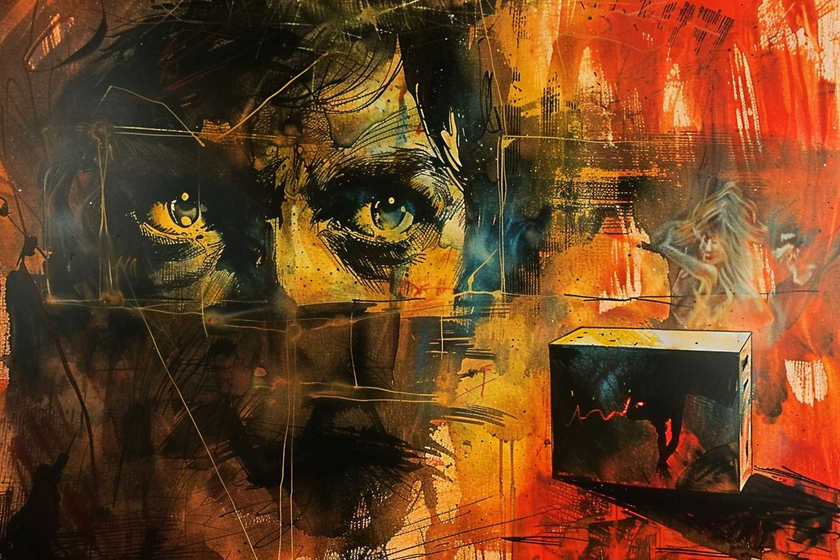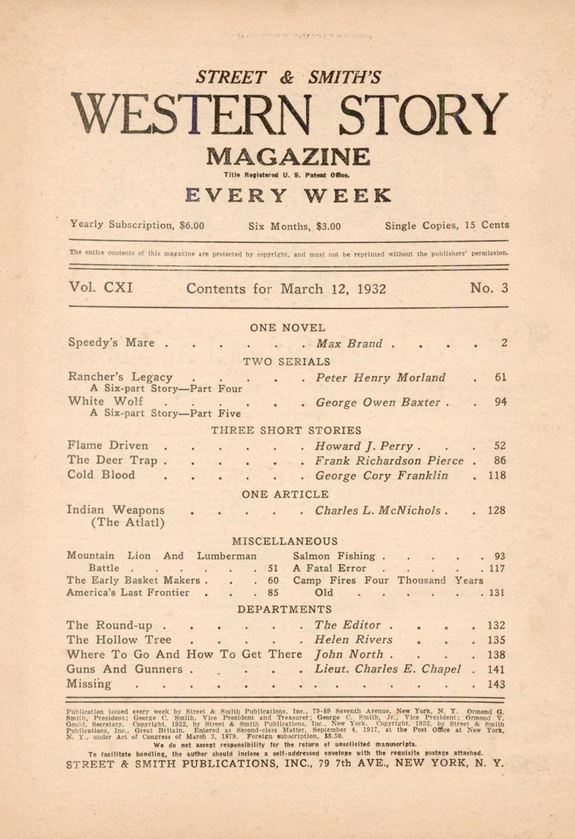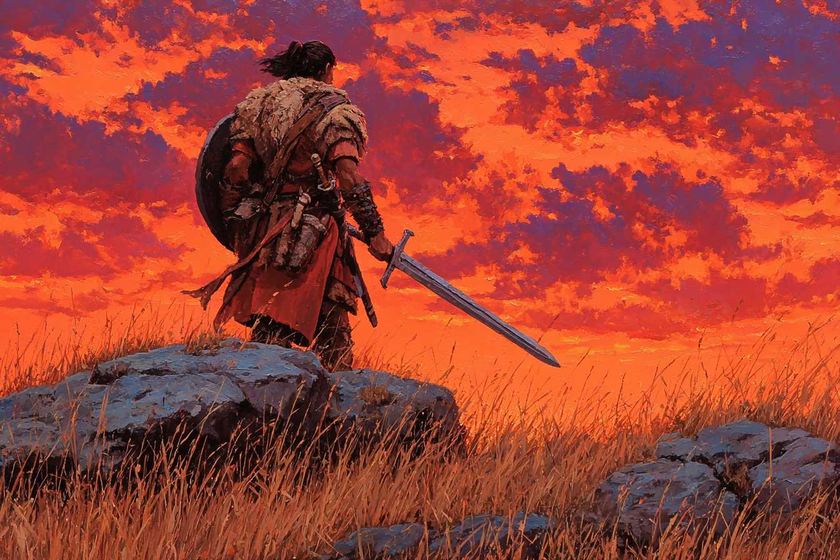
In just the past few days, the concept of "mystery box" storytelling has popped up a couple of times for me, once in a review, and once in a private conversation about the trailer for the DisneyWars series The Acolyte. And a few things occurred to me, or aligned such that I realized consciously something I had always felt subconsciously.
First of all, in case you don't know, what is a mystery box? It's a method of storytelling that J.J. Abrams made famous in a TED talk, and explains both why he is such an awful storyteller, and part of why he has been so successful in Hollywood.
The gist of it is, he bought a "Mystery Box" from a magic shop as a kid, and has never opened it, because he loved the feeling of anticipation about what was inside it, and knew that if he opened it, he would be deflated, because the thrill of the mystery would then be gone. And he holds that presenting such narrative mystery boxes to audiences is far better than ever actually opening the boxes and revealing the mysteries.
He actually shows the Mystery Box in the TED talk, so I'll assume that his story isn't bullshit (in the technical, philosophical sense), but it also does not match up with his early career as a screenwriter. And it also matches too-perfectly a certain line of academic and film studies thinking, the kind of thing that midwits mistake for Very Deep Thought.
Let us start with Abrams's early produced screenplays. Before he turned thirty, Abrams had four films either released or in production based on screenplays he had originated (or co-originated), and had worked as a producer on two of those four.
Those films were the Jim Belushi comedy Taking Care Of Business, released the year Abrams turned twenty-four, the Harrison Ford drama Regarding Henry, released the year Abrams turned twenty-five, the Mel Gibson melodrama Forever Young, and the Joe Pesci-Danny Glover comedy Gone Fishin', released the year Abrams turned thirty-one.
I include his age at the time both to show that he got his position in Hollywood through nepotism (Daddy was a producer, and people don't sell screenplays while they are still in college without connections already in place), and to show that he achieved "success" without any experience or apprenticeship. Which, frankly, is reflected in his work.
Taking Care of Business is a pure gimmick comedy. Jim Belushi finds a highly successful busines executive's daily planner (for people who hate product placement, it is specifically a Filofax, which company is still in business, and whose trademarked name is used throughout the film) and, through the magic of gimmicky writing, steps into that exec's life without anybody realizing he's not The Guy. There is no depth to it, the potential thematic noir implications are untouched (and besides, Detour did it better forty-five years before), it is purely a vehicle for Jim Belushi to mug, with a side of "hey, '80s comedies were great, let's show everybody we don't understand why!" In short, shallow, forgettable fun, with a title taken from a rocking '70s song.
Regarding Henry is a bizarre duck. Directed by Mike Nichols (who would sink to much more pathetic depths in less than a decade), it was made at a point when Harrison Ford was still trying to be seen as a respectable actor, not just an action lead. He'd had an Oscar nomination in 1985 with Witness, and made several other films where he was probably hoping for the same kind of magic, including The Mosquito Coast, Working Girl (remember that supporting actors in comedies were getting Oscars at that time, including Kevin Kline and Marisa Tomei), Presumed Innocent (which, while a thriller, had a director and a cast that easily elevated it to something more), and more. So a serious, adult script in which a career lawyer gets shot in the head, survives, and has to relearn who he is and how to live probably seemed like a great idea, particularly with a director with the Hollywood cachet of Nichols. Unfortunately, the script, which needed the lawyer to learn Life Lessons, was by an under twenty-five year old kid who had never had to work a real job or struggle in life. So the film has the flattest Deep Insights you can imagine, like family is important, being a lawyer is bad, and things are made better by getting a puppy. Shallow is once again the watchword.
Just ask Roger Ebert:
There is possibly a good movie to be found somewhere within this story, but Mike Nichols has not found it in "Regarding Henry." This is a film of obvious and shallow contrivance, which aims without apology for easy emotional payoffs, and tries to manipulate the audience with plot twists that belong in a sitcom.
Forever Young once again lifts a title from a pop song, and is not only not deep, but utterly tepid in dealing with what could have been an interesting premise. Mel Gibson gets involved in a cryogenics experiment in 1939, wakes up in 1992, and has to deal with the decades he missed, and the love he lost. (No points for thinking Abrams may have read Captain America comics as a kid.) The Life Lessons are just as vapid as the other films, and the drama (such as it is) is undercut by Gibson rapidly aging at the end, thus erasing any consequences of the experiment he was involved with (and robbing him of most of his adult life, but never mind that, we got to a safe ending). (A far, far better treatment of the same idea was done on a smaller budget, to less acclaim and box office, one year earlier in Late for Dinner.)
Gone Fishin' is a comedy nobody saw, nobody remembered even the week it came out, and was mostly notable at the time for being a film on which a stuntman died in a stunt gone wrong. I saw it on cable at some point, and have no memory of it, so we'll just set that one aside. (It flopped so badly it was reportedly one of the reasons Joe Pesci retired from acting.)
The reviews for all of these movies were lackluster, and almost all of them pointed to the shallowness of the writing, and lame life lessons characters were supposed to learn.
So when I say that I suspect Abrams hit upon his mystery box method in reaction to his inability to deliver revelations that anybody found interesting in the slightest, there's a track record there. Isn't it much easier to suggest there is a mystery, get the audience and characters all hyped up for the mystery, and then... never resolve it? If you never resolve it, then nobody can mock your shallow resolution. And, after all, college professors and Very Important Thinkers all say that ambiguity is what Good Art does, right?
Well, here is where a distinction needs to be made.
First of all, somebody is going to bring up MacGuffins, so let me deal with that. A MacGuffin, film buffs know, was defined by Alfred Hitchcock as "the thing that everybody in the story wants, and is otherwise not actually important". Hitch made all kinds of MacGuffin movies, from The Thirty-Nine Steps to Notorious to North by Northwest. That last film, arguably, even has two MacGuffins: George Kaplan, the character who doesn't exist, and the microfilm toward the end of the film, which has some kind of government secrets on it, but is utterly unimportant beyond that. But George Kaplan's nonexistence is explained rather thoroughly before the movie is half over.
The reason that MacGuffins can be undefined ("pure" MacGuffins is the term I've seen) is that they really are unimportant to the actual story being told, apart from motivtaing characters to act. North by Northwest isn't about finding some microfilm and stopping it from leaving the country, it's about a slick ad man who considers the truth to be negotiable suddenly finding himself in a world of lies where nobody believes him and having to learn some sincerity.
Another "pure MacGuffin" movie is John Frankenheimer's Ronin. It's not about whatever is in the silver suitcase. It's about the tensions among a group of ex-spies who don't know each other, and have to work out if they can trust each other enough to do a job they are hired to do, and also if they can trust those who hired them.
Abrams himself wrote and directed a fine example of the pure MacGuffin, Mission: Impossible III. Apart from being a biohazard, the nature of the "rabbit's foot" is never revealed. Because the movie isn't about the rabbit's foot. It is, again, about trust, loyalty, deception, and truth. It is not a mystery box because what the audience wants answered gets answered. The traitor is revealed. The fate of Ethan Hunt's wife is made clear. The members of the team succeed in their mission at the end.
No, mystery box is something more than a MacGuffin. In Lost, there were endless unanswered questions. What was the island? What did the sequence of numbers mean? What was the smoke monster? And so on and so on and so on. It never ended, and the few answers that eventually were served up were about as lame as new puppies making life better.
I never watched Alias, but understand that it got exceedingly mystery-boxy at the end, with the nature of the Rambaldi Cube never being made clear, the metaphysical questions about its effects on history (and, unless I misunderstood one person's lengthy rants at the time of its airing, reincarnation?), and so forth.
But, the midwits who think they are intellectuals will cry, that's Ambiguity, and Ambiguity is Good.
The canonical examples of ambiguous objects in film that academics go gaga over are the suitcase in Kiss Me Deadly, a MacGuffin (but once you get to the end, it's not exactly ambiguous), and its heir in Pulp Fiction, because film students got into arguments over whether it was gold, nuclear stuff, or Marcellus Wallace's soul. PF's version is arguably a MacGuffin, but it's a fairly minor one in the film as a whole, driving part of one plot. The film as a whole is about Jules's redemption and choice to walk a different path than he had up to that point, to which the contents of the briefcase have no relation.
But let's take a MacGuffin whose essence is not a mystery, and is in fact important to the point of the story. Rosebud in Citizen Kane. In one sense, the nature of Rosebud is unimportant in that it is the chasing of it by the reporter that reveals the story of the life of Charles Foster Kane to the audience. But Kane would not be a better film if Rosebud was not revealed to the audience. Because the fact that it is his childhood sled, and he was thinking of that boyhood in his last moments, casts everything he did in the film in a different, more poignant light. (The fact that nobody in the movie ever learns it adds a certain dramatic irony to the proceedings, as well, and irony, as anybody who ever had a college course in the liberal arts knows, is how you can tell whether something is good, or popular trash.)
I am not saying that ambiguity has no place in art, not remotely. But there is genuine ambiguity that can lead you to contemplate important philosophical ideas about life, and there is forced ambiguity of the "oh, aren't I so clever" variety that is usually a stand in for "I had nothing important to say, so ambiguity will tickle the critics".
(I said a few things about ambiguity, and a particularly striking example of it in a film, a few months ago.)
But back to mystery boxes. Chris Gore of Film Threat did a spoiler-free review of the Netflix adaptation of Cixin Liu's excellent novel The Three-Body Problem, and he was (without having read the novel) extremely positive about it. I am not going to watch the series (the novel has a very personal effect on me, as someone who lived in mainland China during some of the time the novel is set, and the trailer for the adaptation enraged me because of how clearly they cut down on the Chinese aspects of the story). Gore convinced me that they have not utterly ruined the book, but he also said something that struck me. He said that it was mystery box storytelling, but that every mystery pays off and has an effect on the story. He compared it extensively to Lost (as an example of nothing paying off).
I take his meaning, and appreciate especially the fact that he credited the well-built elements of the story to the original novel. But "mystery box" storytelling is literally the opposite of what he described the show being. It's presenting a mystery, and having no clue what the resolution is, nor caring much, because, hey, new mystery!
For another Abrams-related example, the TV show Fringe drove me up the wall to the point I stopped watching it after the first season. It had plenty of cool and interesting ideas, but then it did nothing with them, it just kept presenting more mystery boxes and relying on metaknowledge from the viewers for big "oh wow" moments that then got brushed aside as if they were nothing.
Good storytelling uses mystery, and has to, really, but while there is definitely room for ambiguity, and resolving things too neatly or lazily will anger people in the long run (for example, the climax of the movie Signs, which is just stupid all over).
You can have ambiguity in your story, absolutely, but it's tough to pull off. You can have unresolved threads and details, too, but beware of angering your readers. But you must resolve something, and the something must be important to the reader.
To be important to the reader, it should be what the story is really about. If you resolve what the story is really about, then other things that seem important can be left hanging, either for the reader's imagination, or for the sequel.

















